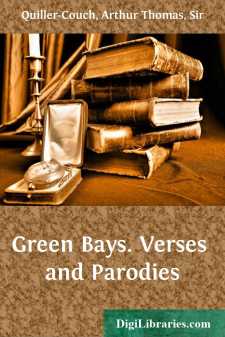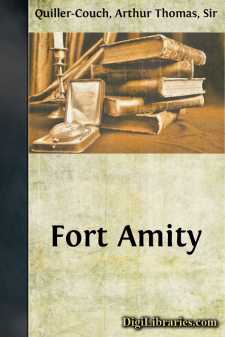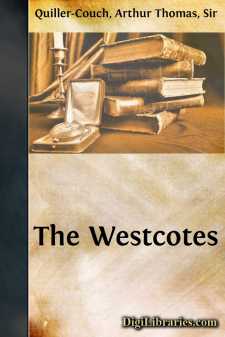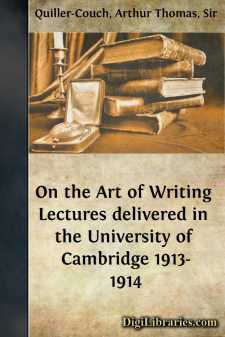Categories
- Antiques & Collectibles 13
- Architecture 36
- Art 48
- Bibles 22
- Biography & Autobiography 813
- Body, Mind & Spirit 142
- Business & Economics 28
- Children's Books 17
- Children's Fiction 14
- Computers 4
- Cooking 94
- Crafts & Hobbies 4
- Drama 346
- Education 46
- Family & Relationships 57
- Fiction 11829
- Games 19
- Gardening 17
- Health & Fitness 34
- History 1377
- House & Home 1
- Humor 147
- Juvenile Fiction 1873
- Juvenile Nonfiction 202
- Language Arts & Disciplines 88
- Law 16
- Literary Collections 686
- Literary Criticism 179
- Mathematics 13
- Medical 41
- Music 40
- Nature 179
- Non-Classifiable 1768
- Performing Arts 7
- Periodicals 1453
- Philosophy 64
- Photography 2
- Poetry 896
- Political Science 203
- Psychology 42
- Reference 154
- Religion 513
- Science 126
- Self-Help 84
- Social Science 81
- Sports & Recreation 34
- Study Aids 3
- Technology & Engineering 59
- Transportation 23
- Travel 463
- True Crime 29
Sort by:
PROLOGUE. "For what is a man profited, if he shall gain the whole world and lose his own soul? or what shall a man give in exchange for his soul?" At Surat, by a window of his private office in the East India Company's factory, a middle-aged man stared out upon the broad river and the wharves below. Business in the factory had ceased for the day: clerks and porters had gone about their own...
more...
IN A COLLEGE GARDEN. Senex. Saye, cushat, callynge from the brake, What ayles thee soe to pyne? Thy carefulle heart shall cease to ake When dayes be fyne And greene thynges twyne: Saye, cushat, what thy griefe to myne? Turtur. Naye,...
more...
OCEANUS I My Dear Violet,—So you "gather from the tone of two or three recent letters that my spirit is creeping back to light and warmth again"? Well, after a fashion you are right. I shall never laugh again as I used to laugh before Harry's death. The taste has gone out of that carelessness, and I turn even from the remembrance of it. But I can be cheerful, with a cheerfulness which...
more...
CHAPTER I. MALBROUCK S'EN VA-T'EN GUERRE. "So adieu, Jack, until we meet in Quebec! You have the start of us, report says, and this may even find you drinking his Majesty's health in Fort Carillon. Why not? You carry Howe, and who carries Howe carries the eagles on his standards; or so you announce in your last. Well, but have we, on our part, no vexillum? Brother Romulus presents...
more...
THE OMNIBUS. It was not so much a day as a burning, fiery furnace. The roar of London's traffic reverberated under a sky of coppery blue; the pavements threw out waves of heat, thickened with the reek of restaurants and perfumery shops; and dust became cinders, and the wearing of flesh a weariness. Streams of sweat ran from the bellies of 'bus-horses when they halted. Men went up and down...
more...
CHAPTER I THE WESTCOTES OF BAYFIELD A mural tablet in Axcester Parish Church describes Endymion Westcote as "a conspicuous example of that noblest work of God, the English Country Gentleman." Certainly he was a typical one. In almost every district of England you will find a family which, without distinguishing itself in any particular way, has held fast to the comforts of life and the respect...
more...
I.—THE TALE OF SNORRI GAMLASON In the early summer of 1358, with the breaking up of the ice, there came to Brattahlid, in Greenland, a merchant-ship from Norway, with provisions for the Christian settlements on the coast. The master's name was Snorri Gamlason, and it happened that as he sailed into Eric's Fiord and warped alongside the quay, word was brought to him that the Bishop of Garda...
more...
POETRY By Arthur Quiller-Couch "Trust in good verses then: They only shall aspire, When pyramids, as men Are lost i'the funeral fire." As the tale is told by Plato, in the tenth book of his Republic, one Er the son of Arminius, a Pamphylian, was slain in battle; and ten days afterwards, when they collected the bodies for burial, his body alone showed no taint of corruption. His relatives,...
more...
"Yes, sir," said my host, the quarryman, reaching down the relics from their hook in the wall over the chimneypiece; "they've hung here all my time, and most of my father's. The women won't touch 'em; they're afraid of the story. So here they'll dangle, and gather dust and smoke, till another tenant comes and tosses 'em out o' doors for rubbish. Whew!...
more...
LECTURE I. INAUGURAL Wednesday, January 29, 1913 In all the long quarrel set between philosophy and poetry I know of nothing finer, as of nothing more pathetically hopeless, than Plato's return upon himself in his last dialogue 'The Laws.' There are who find that dialogue (left unrevised) insufferably dull, as no doubt it is without form and garrulous. But I think they will read it with...
more...











